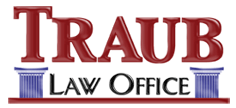Protection and Remedies for Unfair Competition
Most of the time, the name or product of a business is legally protected from being usurped by a competing company. In addition to federal law, some states have laws that protect trademarks, copyrights, and patents, as well as names and descriptive words, against “unfair competition.”
Unfair competition can be defined as an unlawful or deceptive business practice that usually involves misleading advertisement.
Protection of the Law
The law against unfair competition is meant to prevent a business name, service, or product from actual or threatened injury by preventing competitors from copying them and trying to pass them off as their own.
Generally, unfair competition has occurred if the public has been deceived about the authenticity of a name or product, and the authentic name or product loses profits as a result of the deception.
Contributing Factors
Factors used to determine if unfair competition has occurred:
- Fraudulent intent – whether the business purposely deceived the public
- Public confusion about the name or product – resemblance of name or product
- Secondary meaning – whether a specific meaning or identity is immediately and exclusively attached to the name or product by the public
- Other relevant facts – duration of use, extent of advertising, sales figures, profits earned, and marketing areas
Trade Secrets
Also, if a business illegally obtains and uses another business’s trade secrets (such as a special formula, pattern, or device that gives an edge over the competitors), that would be considered unfair competition.
Remedies
Typically, if a business is found liable for unfair competition, it may be ordered to cease all conduct related to the infringement or ordered to pay monetary damages. Monetary damages may include:
- Attorney’s fees
- Lost profits
- Costs of actions
- Punitive damages
